
=
Full Review of Ryan Stewart’s SEO Course
If you are like us, you are either an agency owner, or an aspiring owner that is looking to scale your services. I’m sure you will agree with me when I say that training an SEO team from the ground up can be very difficult.
I bought this course for my team at Need SEO because I wanted to better systemize our processes. Although our team was already competent in SEO, we didn’t have a great process for delivering services to our clients consistently. This course was a big game changer for us in that regard.
What’s included in this course?
Included in the course are modules about Keyword Research, On-Page SEO, Technical SEO, how to do a content audit, Link Building and Reporting. The course was designed to be completed in sequential order as it shows you how to run a campaign from start to finish.
Each section comes with the following:
- Automated Google Sheets
- Email templates and
- Slide decks to share with your clients
You will also get access to a private slack channel where you can ask Ryan and any other member questions about either the course or SEO in general. They have a support group available to help with any technical issues you may encounter when setting up your templates.
In this review, I am going to break down every module and how our team has added these systems into our agency.
Kickoff Data Analysis
The kickoff Data Analysis is a module dedicated to learning and downloading as much information as possible about the client’s website. This includes going through their past 12 months worth of data and figuring out areas they need to improve.
This is a really important module for us because it can help us find any significant issues upfront.
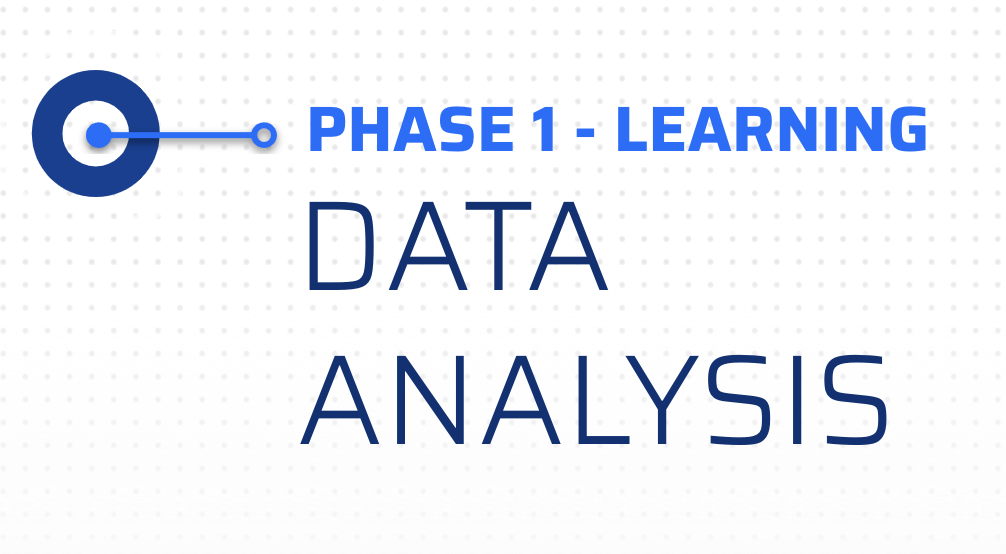
Project Management
Project Management is by far the most under appreciated aspects of running a successful SEO campaign. A lot can fall between the cracks when working on multiple campaigns, however Ryan and his team built out a very useful PM tool in Google Sheets to help your team stay on track.
Our team switched over from Asana to using the project management system because it is much more flexible for our needs.There is also an Add-on available now that allows you to sync all your other sheets from the Blueprint Training stack.
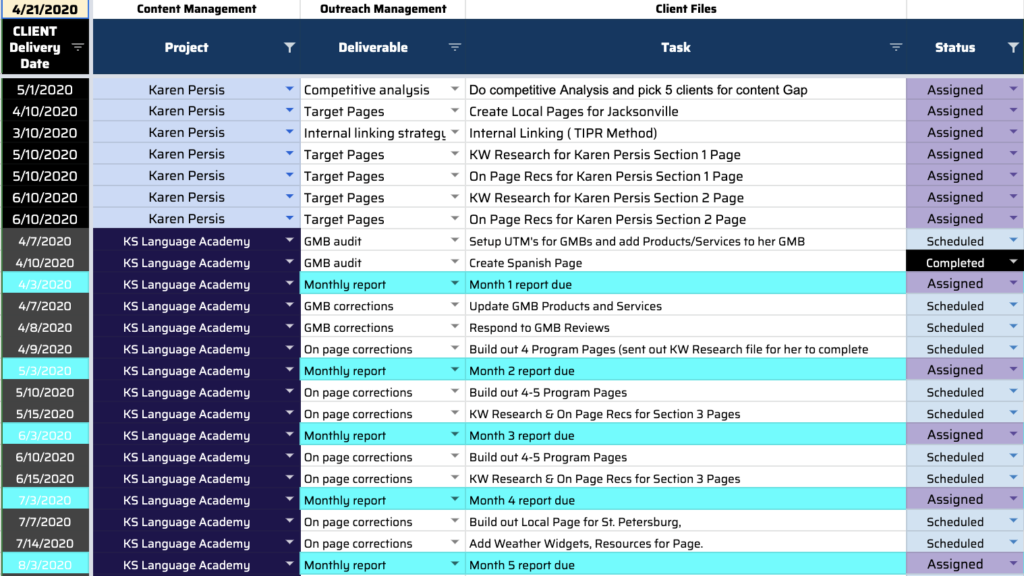
Don’t just take it from us!

Analytics Auditing
Analytics Auditing Module is a template to ensure all your analytics tracking data is firing properly. This is super useful as creating ACCURATE reports for clients is a key component to keeping them on board.
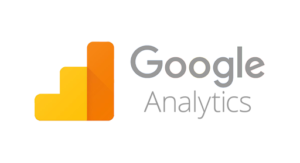
Website Quality Audit
The website Quality Audit (WQA) is a built in Google Sheets template designed to do a very High Level audit of your website.
The WQA utilizes tools like Screaming Frog to extract the following:
- Technical difficulties with Screaming Frog
- Keywords per each URL with SEMrush
- Referring Domains from AHREFS
- Traffic analytics from GA and GSC
The WQA allows us to organize and strategize our SEO campaigns because it tells us exactly what we need to do with every single page on a client’s website. We consider this audit to be the Swiss army Knife of SEO audits because it combines a content and technical audit all in one.
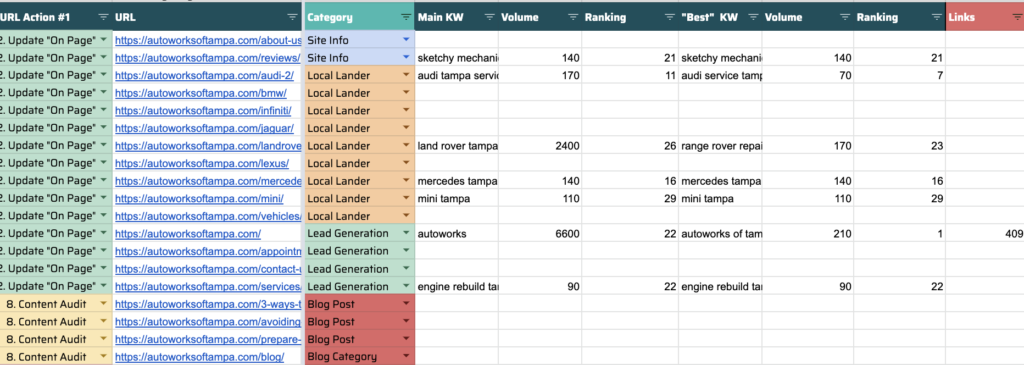
Technical SEO
Although the Website Quality Audit pretty much gives you everything you need when it comes to doing a Technical SEO Audit, on big enterprise sites you might need to take it a step further. In this Module, Rodrigo shows how to do a very high level audit using Machine Learning.
We actually don’t use this module too much because we rely more on the Website Quality Audit to find any technical issues. However, if you are working with more enterprise level sites, ML can give you deeper insights.
Keyword Research For EXISTING Pages
After completion of the Website Quality Audit, we have a solid understanding of which pages need to be improved upon based on analytics and SEMrush data.
Many people do keyword research by looking at the keyword with the most search volume, but Ryan’s approach is much more data-driven. He has created a process for identifying which keywords to prioritize according to the competition and the type of content ranking in the SERPS.
There’s also a Google Sheets template that is very easy to fill out for all the pages that need updating. Since it comes with video content, you can easily pass this off to a VA to do the research and fill out the template for all your target keywords.
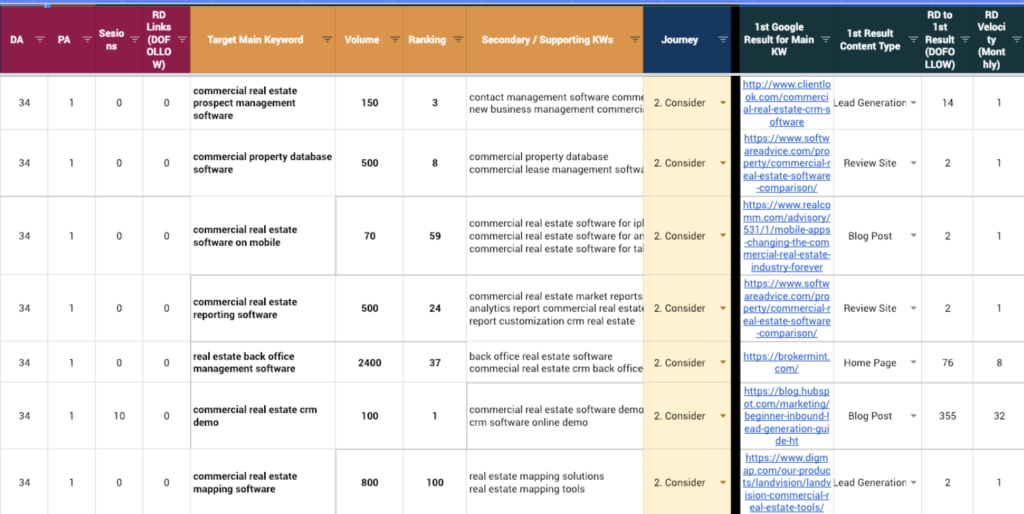
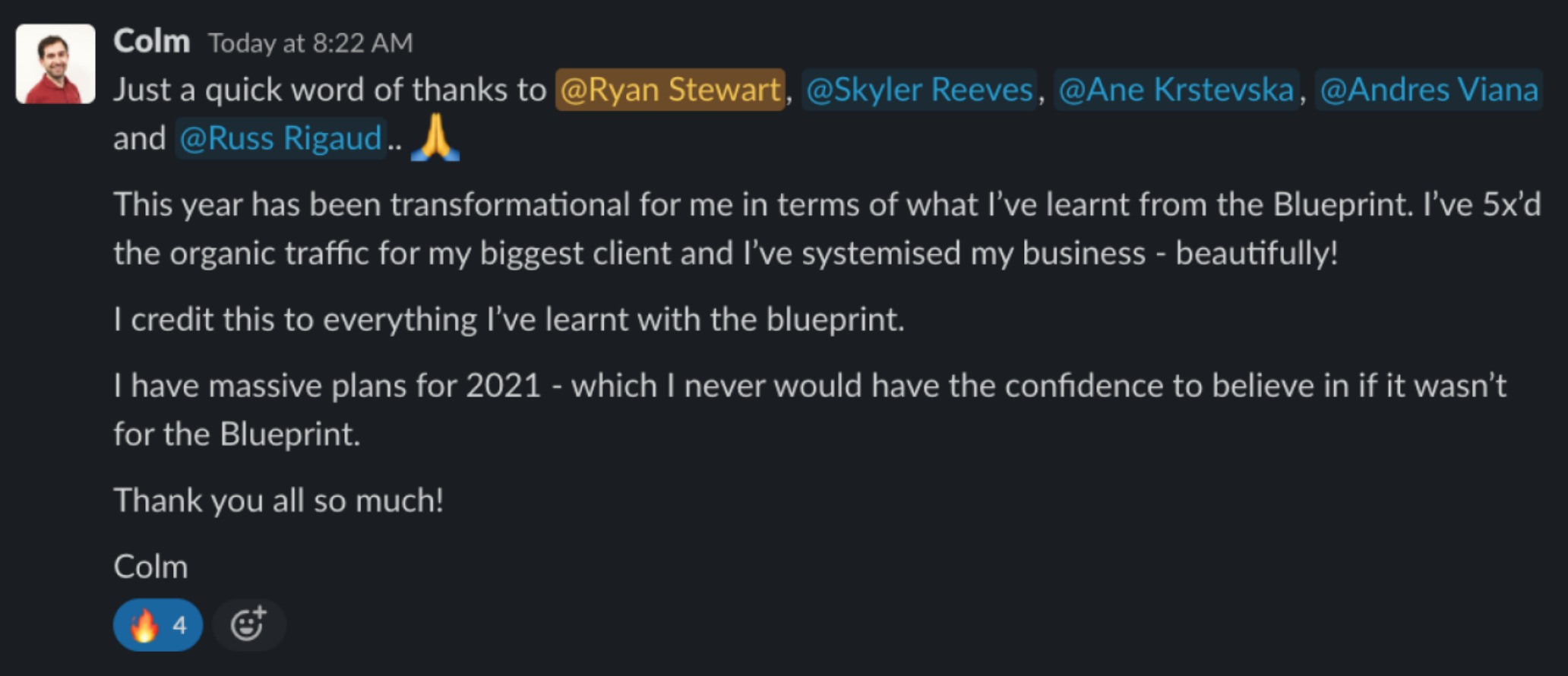
On Page Optimizations
Following the Keyword Research Module, we head into the On Page Analysis Module. After completing our Keyword Research we are able to create strong recommendations to our title tags and headings to make our page much more topically relevant.
Ryan shows exactly how to reverse engineer the top ranking results by checking for things like LSI keywords, Schema Markup, word count and much more.
This on page module been so helpful to us. We use it as a step by step checklist to ensure we have all our ducks aligned before moving onto link building.
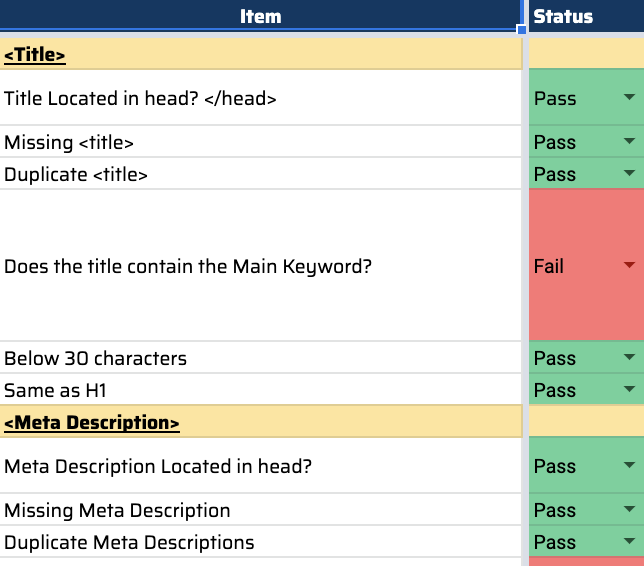
Internal Link Analysis
Internal Links are often forgotten about especially on a bigger enterprise site. However, they can exponentially improve your website’s overall traffic. David and Ryan developed a very strong template to automate a lot of the tedious process of manually finding internal link opportunities relevant to each page.
Their template was created based off Kevin Indig’s TIPR method which accounts for both internal, external, overall traffic and backlinks. Most people utilize internal links without accounting for the backlinks coming in making it an incomplete assessment.
We love using this template to automate our internal link analysis because it saves us so much time finding link match opportunities using some REGEX that David built in.
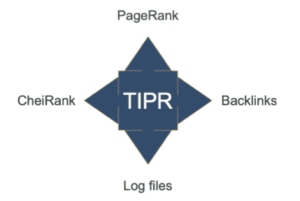
Content Audit
The content audit is a really good module that shows exactly how to prune and improve your existing blog posts to turn into Linkable Assets. The keyword Research Module served more for pruning lead generation and Local Landing pages, but the content audit is used primarily for blog and informational posts.
Ryan gives a total breakdown on which pages to update, merge, delete or no index and 301 redirect by checking a variety of different metrics.
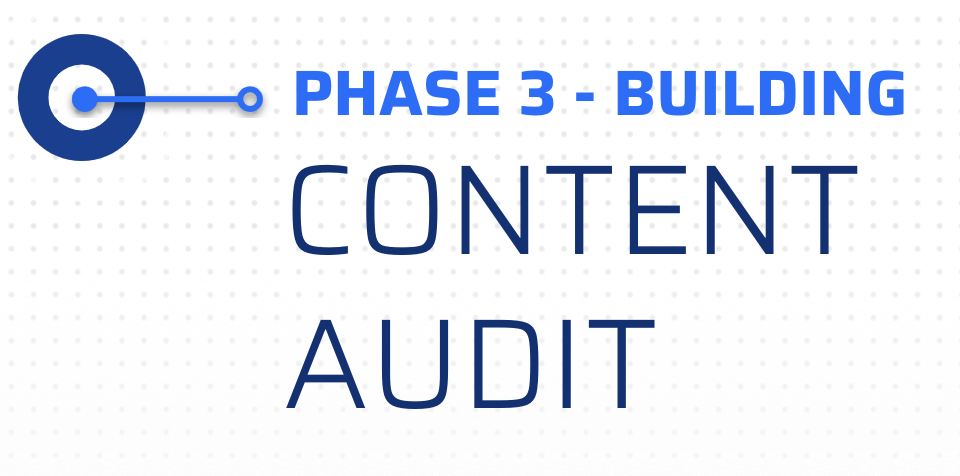
Keyword Gap Analysis
Once you have finished auditing existing content, it’s time to expand your keyword footprint. Ryan and David built an automated google sheets template that compares your keyword data to 3-5 competitors using Ahrefs.
The keyword gap analysis really helps us to shortcut the amount of time we spend doing additional keyword research. What’s so great about this template is we can keep running this analysis on different competitors for new opportunities. It also brings in Keyword Difficulty from Ahrefs, which can help us prioritize our efforts.
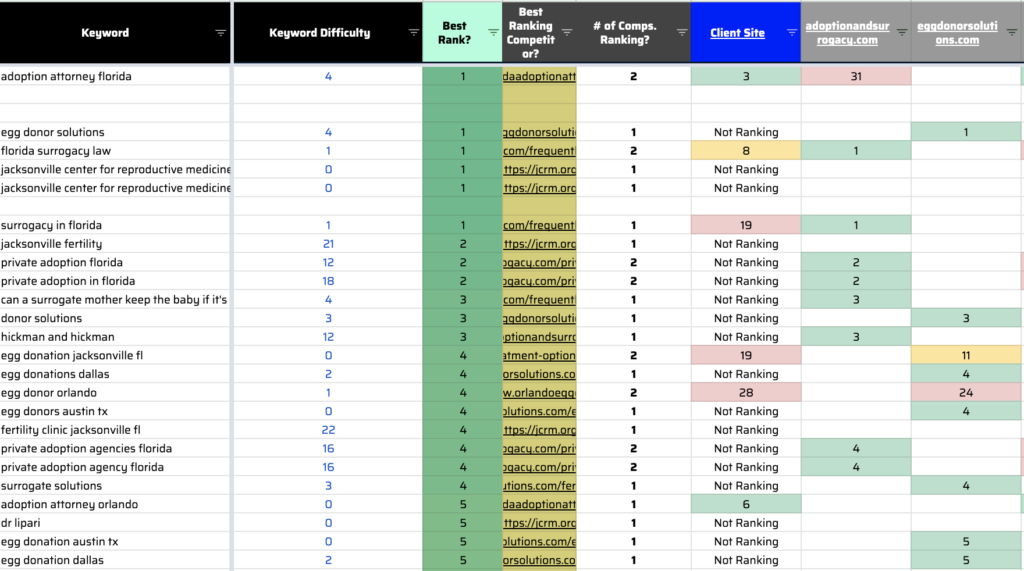
Content Strategy and Campaigns
Following the Content Audit and Keyword Gap Analysis, the next Module shows exactly how to use our topic ideas and form really strong outlines. This includes reverse engineering the SERPS to see what top ranking keywords have like images, what LSI keywords they have on page and overall length of their content.
This makes it really easy to hand off to a client or writer, to get the content created. Ryan shows methods for building out outlines using a premium tool like Clearscope or free tools like Google Suggest.
This has saved our team so much time. Instead of spending hours writing out these outlines for writers, we can generally do it within 15-30 minutes using the help of Ryan’s templates and Clearscope.
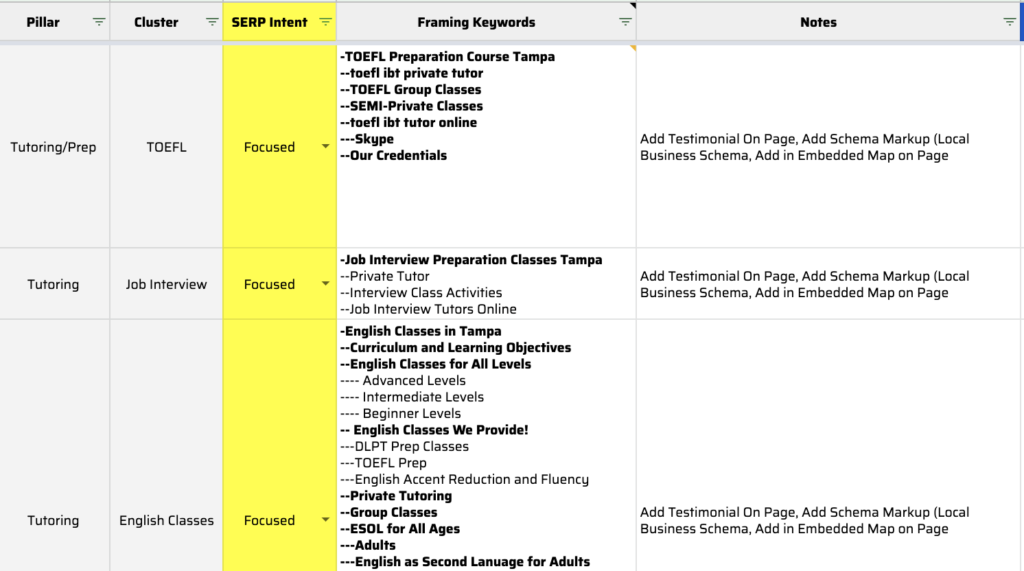
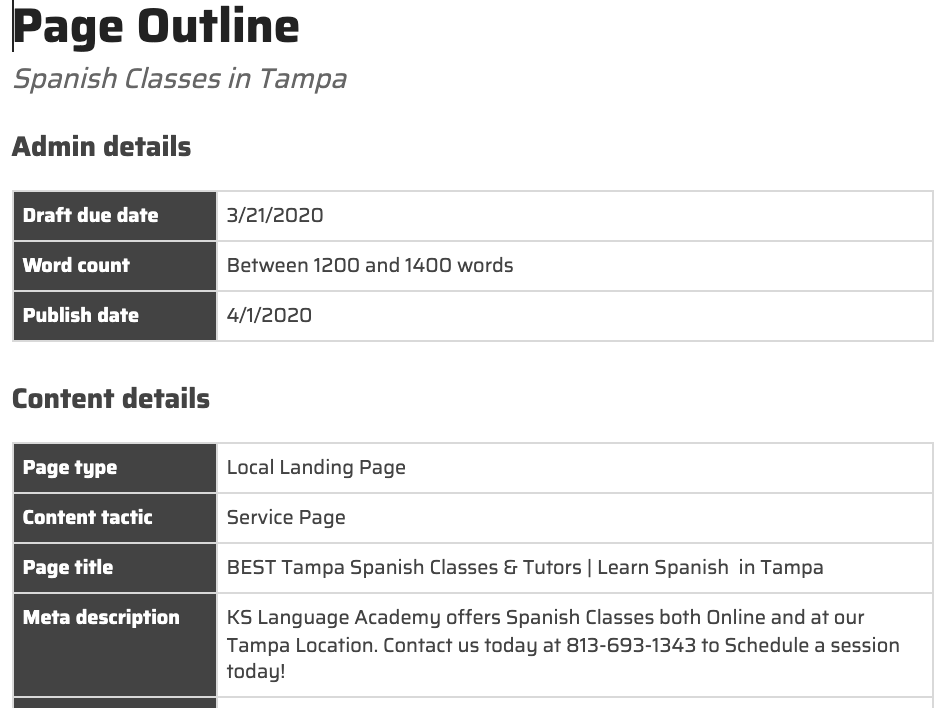
Link Building Module
Links are arguably one of the most important aspects of SEO. This module gives a step by step breakdown of how to do Link Building at a very high level. It shows how to find all different type of quality link opportunities including: Local Outreach, Guest Posting, Link Roundups, Directories and Sponsored Posts (as a last resort).
Ryan also has a sub section where he talks about moving to a fully outsourced model. He teaches you what vendors to use and how to vet each link to limit possibilities of getting a manual action. This is the method we have used to great effect since we don’t currently have an in house team.
Since we adopted this fully outsourced link building method, understanding how to vet each link has played a crucial part in running a frictionless campaign for our clients.
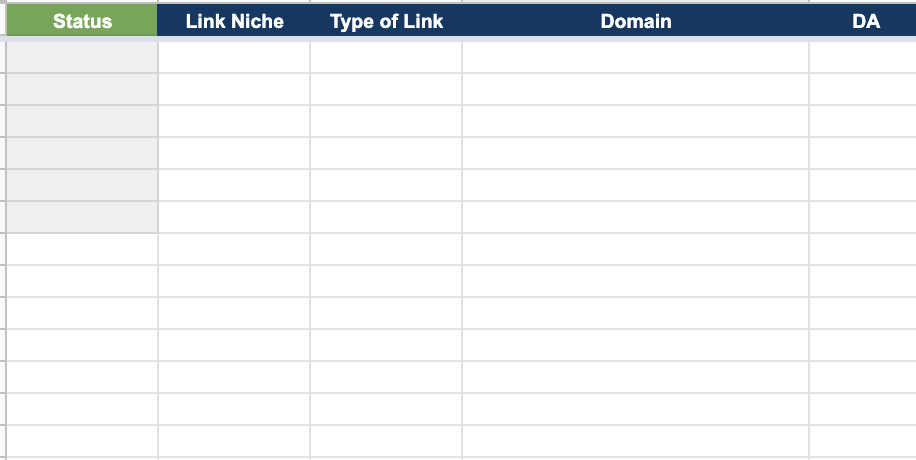
Reporting for SEO
Reporting is the most important factor in retaining clients and keeping them up to date with their overall campaign. This module has a built out data studio report highlighting all the important metrics. The report consists of 7 different pages and uses data from search console and Google Analytics.
The reporting templates are very good, however we have developed our own proprietary Data Studio Report in house.

Local SEO Reporting
While the monthly SEO Report can be used for Local SEO, it is really geared for much bigger clients. However, the Local SEO Module is designed specifically for Local SEO clients and highlights metrics at the local level like Google My Business sessions.
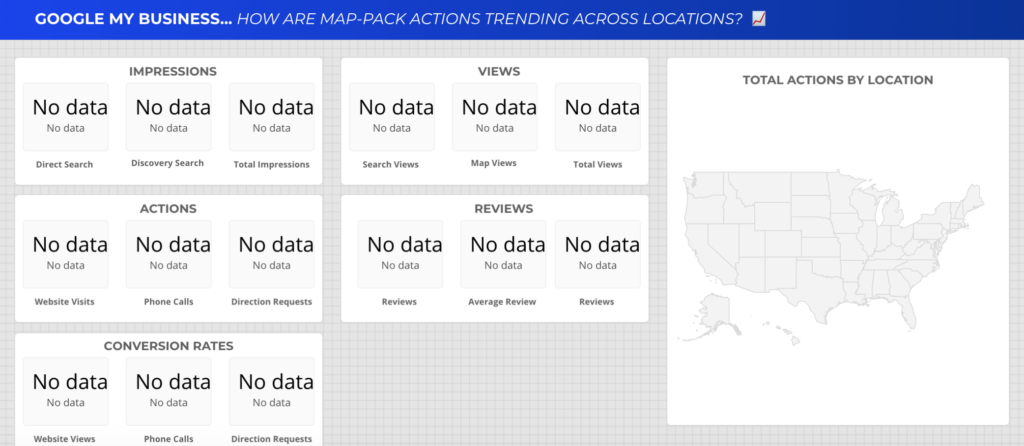
Agency Pulse Reporting
This module is a built out report for the agency owner to keep a birds eye view of all the accounts. It allows you to see how organic traffic is trending for each client’s site.

Agency Sales
The Agency Sales Module shows how to create high level proposals for clients and develop appropriate pricing.
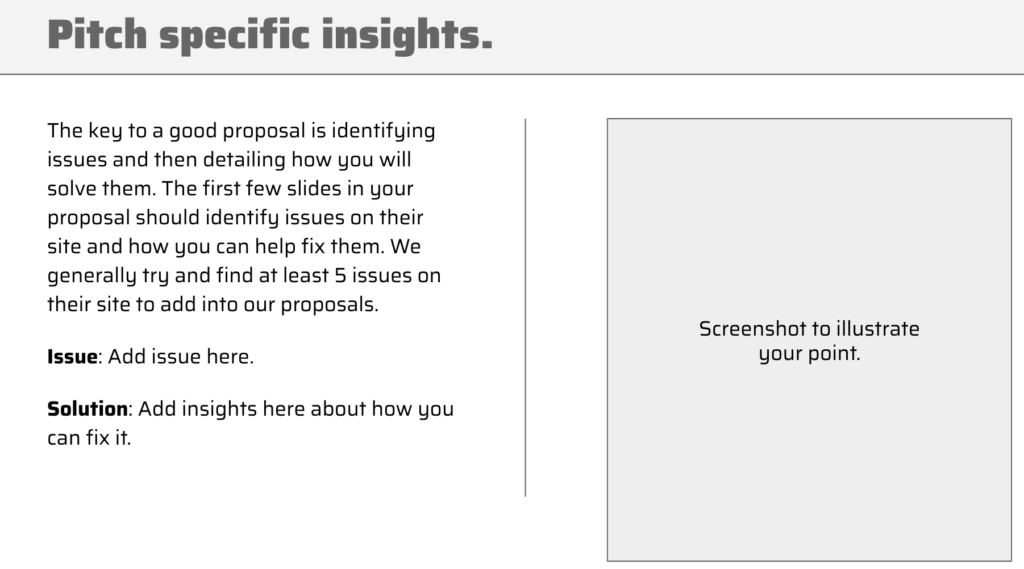
Overall Course Rating:
We give this course a really strong 9.7/10. The amount of SEO knowledge we acquired from this course really helped us to deliver our services at a much higher level. We are now able to scale much more by hiring VA’s because we have this course to train our internal team.
Course Pros:
Everything is laid out in sequential order, which makes it really easy to apply these processes to your agency. I also think this course is really comprehensive and can take you from an intermediate to advanced level SEO very quickly. Ryan also updates the content on this course based on the feedback from the community.
Course Cons:
If you are an SEO beginner, this course may be a little bit too advanced for you. I also think there is so much content that it can be overwhelming at first. However, Ryan and his team are developing a study plan for what videos to consume depending on your current focus/needs.
